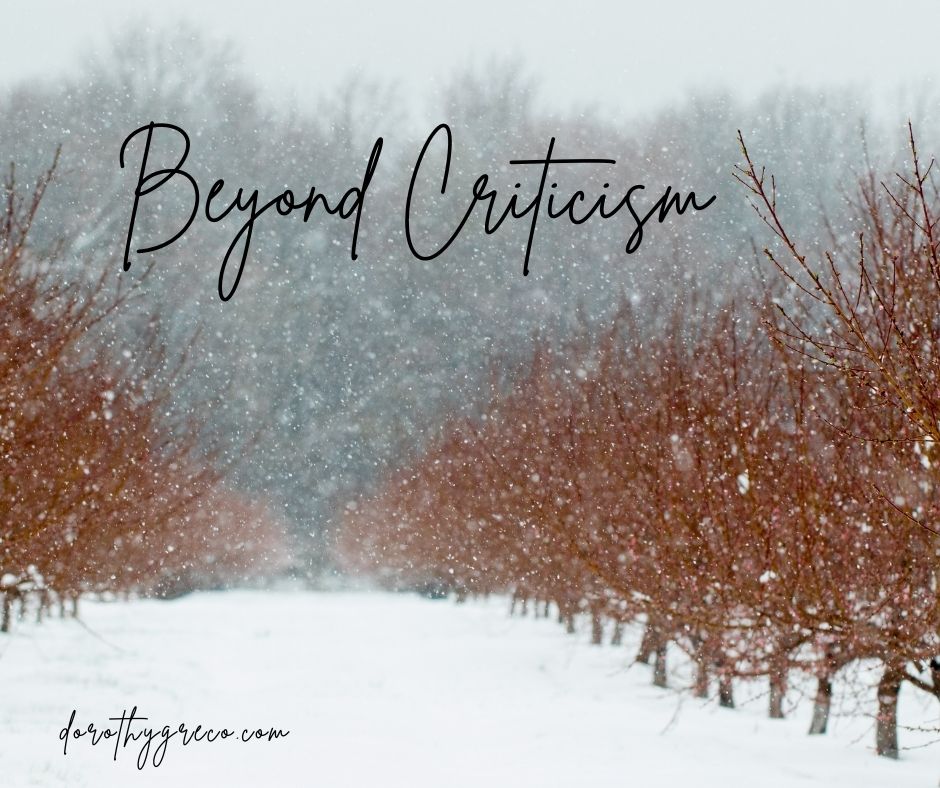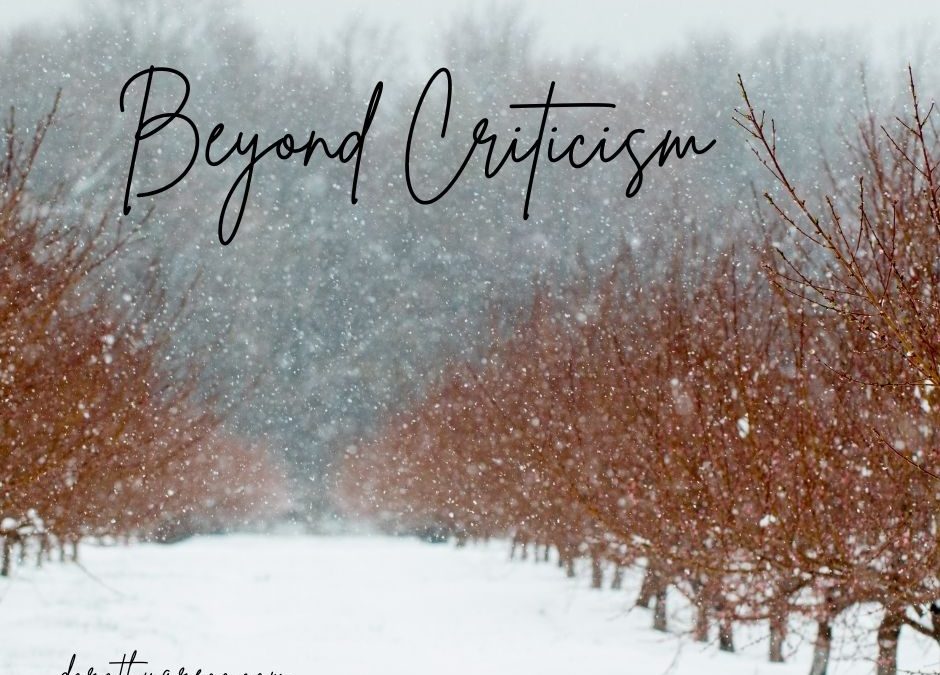
Criticism is an essential component of every aspect of life—including our relationships and our creative processes. Regarding the latter, while writing my books, I’ve made thousands of critical decisions. This idea, this word, not that one. Some of my favorite paragraphs have been deleted. Similarly, when I edit photos after a shoot, I quickly assess which images are the strongest based on the composition, light, and people’s facial expressions. There’s no morality and few emotions attached to these choices. I don’t have to worry about hurting anyone’s feelings as I edit. Criticism is a lot trickier in the relational realm.
In fact, it can be downright dangerous. Most of us are skilled in identifying—sometimes to the millimeter—what’s wrong with our spouse, our in-laws, our pastor, etc., and typically we don’t stop at identifying the problem. We hone in on it, magnify it, and either make unfair conclusions or blame others for whatever frustrates or disappoints us.
Sadly, we seem to have cataracts regarding our own flaws. In the context of marriage and friendships, if we fail to understand the extenuating circumstance or how we contributed to the issue, our criticism will most likely be inaccurate, unhelpful, and possibly even damaging.
Take Scot and Camille whom I interviewed in Marriage in the Middle. Scot felt that Camille was not as spiritually minded as he was. That wasn’t a fair or objective assessment. She simply did not feel the need to attend church events and meetings multiple nights a week. Rather than imagining together how she might become more engaged or owning that he was overly-invested in church, he judged and criticized her. That ongoing criticism hurt her and contributed to her looking outside the marriage for approval and validation.
I’ve struggle with criticism in my marriage. It’s not so much because I don’t see my own flaws or don’t appreciate my husband but that I feel powerless to change the behaviors that I find irritating or inconvenient. The logic is totally warped but when I’m critical, I feel less powerless. In Martin Scorsese’s recent documentary Pretend It’s a City, writer Fran Lebowitz explains her habit of criticizing: “I have so many opinions about everything and absolutely no power.” Yes. This. It’s infinitely easier to criticize than to process our disappointments or wait with no assurance that what we want or hope for will come to pass. Of course, criticizing others fails to bring about dynamic, healthy change and mostly creates ill feelings.
Hard-core critics tend to be perfectionists, visionaries, hard-core rule followers (think the Pharisees in biblical times), or folks who have not done their spiritual work. I identify with the first two categories.
When I was growing up, I was incredibly sensitive to being criticized and hated making someone I cared about unhappy. Gradually, I intuited that if I could do everything perfectly—get all A’s, play a basketball game without any missed foul shots, finish all my household chores before dinner—everyone would like me and I could avoid conflict. I became my harshest critic. The smallest mistake would result in turning my shame-based anger inward and calling myself derogatory names for days. It wasn’t until I was in my forties that I realized this was a form of self-hatred that I needed to repent of.
Those of us who are artists or big-picture thinkers can easily fall into the habit of criticizing systems and people. If we have clarity about what we want to create or how something could function more efficiently and those in power block us, a common response is to pick apart whoever has gotten in our way. The more erudite and sardonic the better. Again, this reveals our disappointment and powerlessness. Like Fran Lebowitz, few of us have the potential to re-organize government, police practices, subways systems, or church politics.
Rule followers and those who have not done their spiritual work are typically motivated by a different muse when they critique. For the former, there can sometimes be a smug, self-righteousness that revels in doing things “the right way” and enjoys diminishing others. This is more about inflating a flaccid ego than anything else. Those who critique out of bitterness or resentment often seek revenge, sympathy, and justification for their anger or hurt. My husband had a relative who fit this description. One could not interact with her for more than ten minutes without hearing a litany of past offenses, many of which happened decades ago. Her harsh criticism fueled her bitterness and resulted in an angry, lonely life.
For criticism to be productive, it needs to move beyond focusing on the problem to finding solutions.
Disappointment, unproductive fights, or a vague sense of malaise can all be the genesis for imagining something new. We first need to note the feeling and then discern what it connects to. We may then have to wrestle with feelings of powerlessness and even do some grieving. By admitting our own mistakes and humbly holding an awareness of our limitations, we can then begin to imagine how the dynamics might change. This is seldom a quick fix. It sometimes takes years of hard work to re-calibrate and change deeply-embedded, broken patterns. But it is possible and trust me on this one: it’s totally worth it.
You can read more on this topic in Marriage in the Middle.
